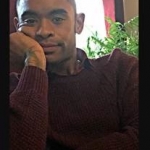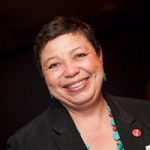
Ms. Dawn Heinen
Youth Finding a Voice, Finding a Stage
Posted by Sep 12, 2017

Ms. Dawn Heinen
Excerpted from my interview with Xavier Harvey: “What I’ve noticed being an actor and being involved with Actors’ Shakespeare Project is the tools that art gives you is learning more to express yourself. So when you’re hit with a difficult angle at something and you don’t know how to go about it, you learn different ways to conquer those challenges and all those obstacles. And in my way and where I live and the people that I surround myself, I always think about if I was put in that position again, if I had an artist’s way of thinking then I would have taken these challenges different and made better choices in life.”
Read More










